A First Successful Edition of the Annual Series of Symposium on “Microbiota Sciences: from Disease to Health”

267 attendees from eminent research institutes, universities, hospitals, companies; 24 speakers from 7 countries including China, 4 memorable keynote lectures; the International Symposium entitled: “Microbiota Science, from Disease to Health” was a great success illustrated by lively Q & A moments following each talk. In spite of combining presential and distantial modes in these difficult Covid-19 times, communication went smoothly and efficiently. The Symposium held at Hope Hotel in Shanghai was organized by the Center for Microbes, Development and Health at Institut Pasteur of Shanghai - Chinese Academy of Sciences in collaboration with Fudan and Jiaotong Universities.
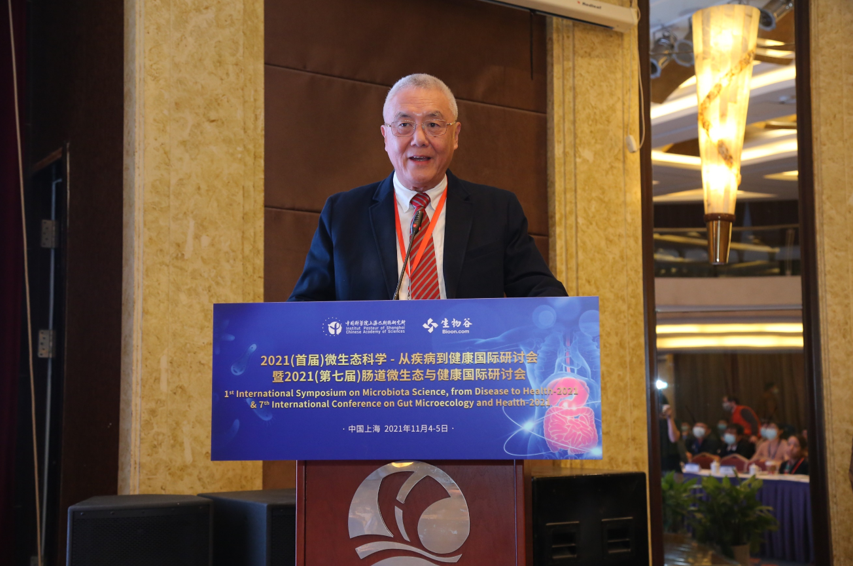
Prof. Guoping Zhao, Director of the Dept of Microbiology and Microbial Engineering, School of Life Science, Fudan University during his introductory speech
This first Symposium indeed largely focused on the microbiological dimension of microbiome sciences, as our knowledge of the evolutionary, physiological and ecological forces that establish and maintain the human microbiome as a resilient bacterial ecosystem increases at vertiginous speed. Still, as any ecosystem, the human microbiome is submitted to environmental influences like changes in diet, medications, pathogen intrusion that may affect its diversity, hence possibly causing pathogenic dysbiosis, forcing us to revisit our concept of disease causality.
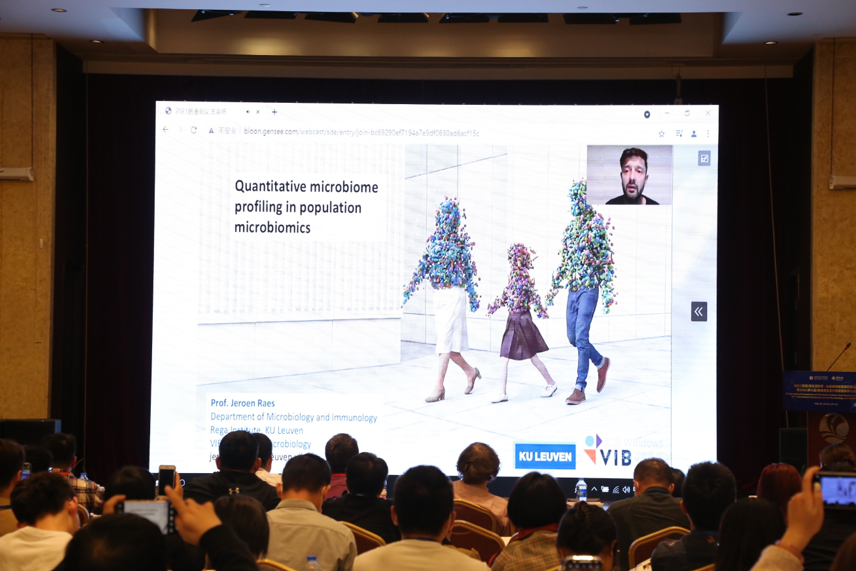
Prof. Jeroen Raen, Deputy Science Director of the VIB of the VIB-KU Leuven Center for Microbiology, as he gave his online presentation
It is in this perspective that the symposium encompassed a fair number of initial talks approaching the essential concepts and techniques that emerged, over the last two decades, to decipher enormously complex bacterial ecosystems in time and space, like culturomics, new generation sequencing opening the way to metagenomics, and metabolomics. As shown, this “multiomic” combination is essential to figure out the intrinsic dynamics of the human microbiome, but also its complex interactions with its host.
International collaborations with sharing of common standards and open biobanks was called upon in several occasions and a global vision encompassing the virome - including bacteriophages - and mycome, were also strongly encouraged as better visibility on the symbiosis between the microscopic and microscopic world appears as a strong driver of human and animal evolution and homeostasis.
The other major topic considered was the barrier effect to pathogen colonization and infection: bacterial and fungal pathogens, as well as viruses, indeed including SARS-Cov-2. This key property of the microbiome can be emphasized as a major function of the host - microbe mutualistic symbiosis, and the possibility to harness some of these defense mechanisms to identify novel anti-infectious drugs and strategies were considered and discussed.
The success of this Symposium convinced its organizers that there is room in Shanghai for an annual international and multidisciplinary forum on Microbiota Sciences under its numerous promising angles.
See you next year!
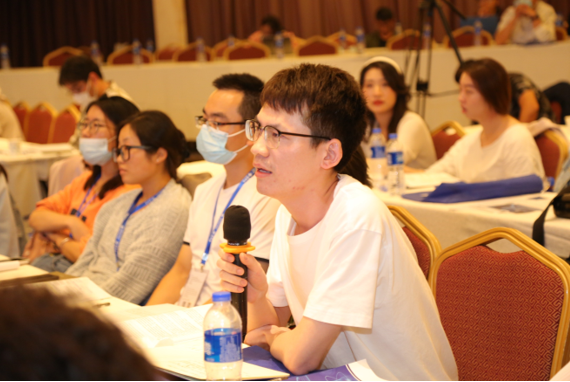
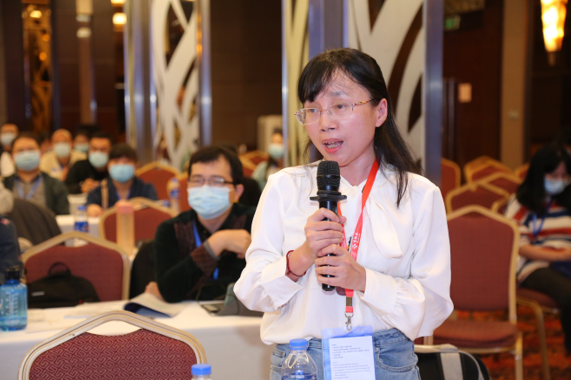 Participants during the live Q&A sessions
Participants during the live Q&A sessions
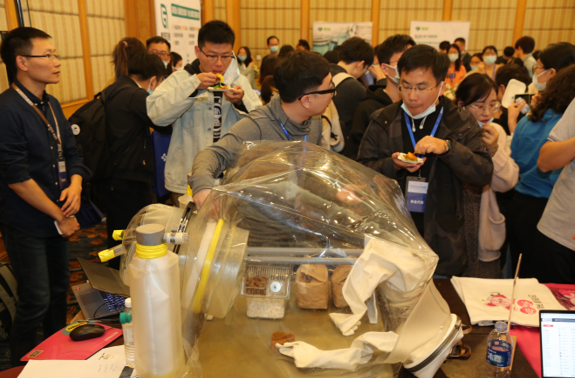

Participants at the exhibition hall during the break sessions